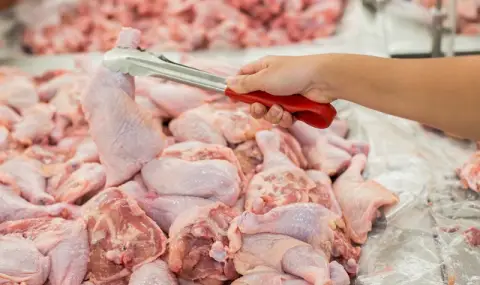The EU and the UK do not import chlorine-treated chicken from the US, as well as hormone-treated beef. Their food safety standards do not allow it. This has greatly angered Trump.
US President Donald Trump wants other countries to import more US beef and chicken. However, a number of countries have been restricting imports of these products for decades because they do not meet their food safety standards.
According to Trump, the restrictions on US beef imports to the EU and the UK, as well as the ban on the export of live US cattle to Argentina, were "unscientifically based". Trump has used these bans on US meat imports as part of his rationale for imposing new trade tariffs.
Why aren't countries importing US beef?
For Australia and Argentina, the restrictions date back to 2003, when bovine spongiform encephalopathy (BSE) was discovered in US cattle. It is a disease that affects the nervous system of cattle. It is also known as "mad cow disease". People can contract the disease when they eat infected meat. In Australia, it is known as Creutzfeldt-Jakob disease. Globally, it has killed a total of 233 people after eating infected meat.
US health authorities have reduced the spread of BSE in US cattle enough to lift a ban on beef exports to Australia in 2019. "Some producers or companies in the US may have the impression that Australia is banning American beef, but there is no such ban," says Robin Alders, a veterinarian at the Australian National University.
However, imports from the US are still limited. To be allowed to import US beef into Australia, US cattle producers must prove that their cattle were entirely raised, raised and slaughtered in the US.
In 2018, Argentina lifted its ban on US beef products, but maintained a restriction on live cattle imports until the two countries finalised a new "sanitary certificate".
Hormon-free for the EU and UK
Since 1989, the EU and UK have restricted imports of US beef because the US cattle industry sometimes uses growth hormones to increase meat and milk yields. The EU imports beef from the US, but only if it has not been treated with hormones.
The EU ban, which is also supported by the UK after Brexit, is based on its own scientific assessment that shows that daily intake of growth hormones can have negative health effects, including evidence that estradiol 17ß can cause tumours.
The US cattle industry has opposed the EU restrictions, saying that US food safety tests have not shown a risk to the health of adults. "But the European perspective is that the population is not just made up of healthy adults, but also babies, children, the elderly, people with compromised immune systems," says Eric Millstone, a food policy expert at the University of Sussex in the UK. He said EU authorities had carried out a much more comprehensive risk assessment of hormone-treated beef than US authorities.
Chlorine-treated chickens banned in Europe
The US has also criticised EU bans on imports of chlorine-treated US poultry.
US poultry farmers wash poultry in chlorine solutions to kill harmful bacteria such as campylobacter, which often causes food poisoning.
The European Food Safety Authority (EFSA) said chemicals in poultry meat were unlikely to pose a health risk to consumers. However, European authorities are concerned that rinsing chicken with chlorine at the end of the production process allows for a lowering of hygiene and animal welfare standards at earlier stages.
Millstone adds that some studies have shown that rinsing with chlorine may not have the intended effect of decontaminating the meat. "Chlorinated water is not an effective disinfectant. The bacteria are still there and they are dangerous and contagious, but they just haven't been detected," says Millstone. As a result, the rate of bacterial food poisoning in the US is significantly higher than in the European Union or the UK, he explains.
What should US producers do?
Currently, U.S. livestock farming methods are either incompatible or too impractical to meet the food safety requirements of export markets.
Australia and Argentina are open to importing U.S. beef, but U.S. producers must meet their regulatory standards. The path is more difficult for the U.K. and the EU, which would require U.S. producers to stop using growth hormones in beef production and end the practice of chlorine-washing poultry.
Poll data suggests that Europeans are opposed to allowing U.S. meat products—a 2020 survey found that 80% of the British public opposed allowing imports of chlorinated chicken.
